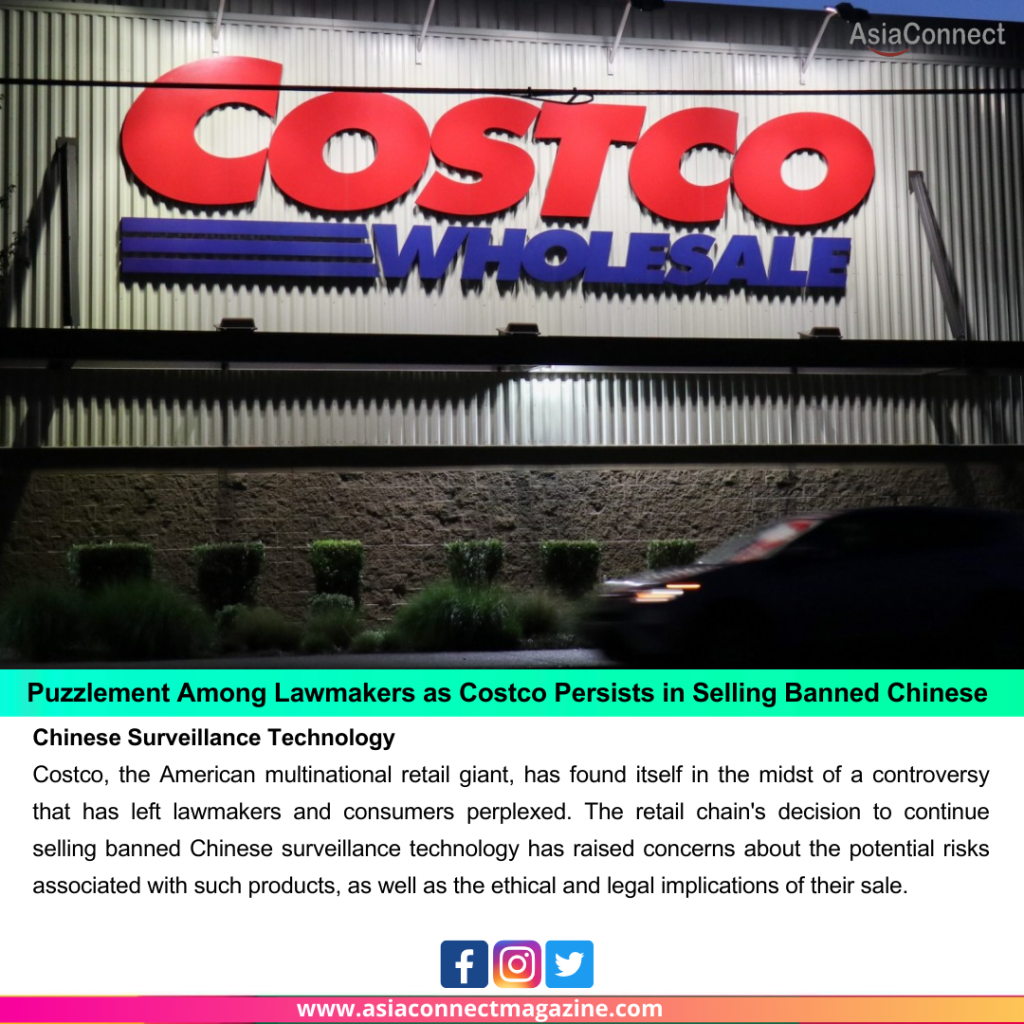
Puzzlement Among Lawmakers as Costco Persists in Selling Banned Chinese Surveillance Technology
Costco, the American multinational retail giant, has found itself in the midst of a controversy that has left lawmakers and consumers perplexed. The retail chain’s decision to continue selling banned Chinese surveillance technology has raised concerns about the potential risks associated with such products, as well as the ethical and legal implications of their sale.
The controversy stems from the fact that several Costco locations in the United States have been selling security cameras and related equipment manufactured by Chinese companies that have been banned by the U.S. government due to national security concerns. The banned companies, including Hikvision and Dahua, are known for their close ties to the Chinese government, raising alarms about potential espionage and data security risks.
Lawmakers, including members of Congress, have expressed their puzzlement over Costco’s persistence in selling these products, despite the well-documented national security concerns associated with them. The issue has prompted a closer examination of the complex relationship between American retailers and Chinese tech companies, as well as the challenges in enforcing bans and restrictions on specific products.
One of the primary concerns raised by lawmakers is the potential for these Chinese surveillance cameras to be used for espionage or cyberattacks. Hikvision and Dahua have been linked to human rights abuses and surveillance activities in China, leading to their blacklisting by the U.S. government. Lawmakers worry that these cameras could be used to gather sensitive information or compromise the security of American consumers.
Costco’s stance on the matter has been met with scrutiny and criticism. The company argues that the products it sells comply with all applicable laws and regulations and that it is merely providing consumers with choices in the marketplace. However, critics argue that selling banned Chinese surveillance technology poses an unnecessary risk, and consumers may not be fully aware of the potential security and privacy implications.
The ethical dimension of this controversy has also garnered significant attention. Some argue that retailers like Costco have a responsibility to ensure that they are not inadvertently contributing to human rights abuses or compromising national security. In an age where technology plays a critical role in our daily lives, the source and security of these products are of utmost importance.
The issue highlights the challenges of enforcing bans on specific products, especially in a global market where supply chains are complex and often span multiple countries. While the U.S. government has taken measures to restrict the use of certain Chinese technology, ensuring that these bans are effectively implemented and enforced remains a formidable challenge.
Costco’s situation underscores the broader issue of supply chain transparency and the need for retailers to be vigilant about the origins of the products they sell. Many American companies have faced scrutiny over their relationships with Chinese manufacturers, given the concerns about labor practices, environmental impact, and national security risks.
Efforts are underway to address these concerns. Some lawmakers are calling for stricter regulations and more comprehensive checks on the supply chain of consumer goods, especially those with potential security implications. Additionally, they are urging retailers to be more discerning in their product selection, especially when dealing with technology and surveillance equipment.
Furthermore, consumers themselves have a role to play in raising awareness about the origin of the products they purchase. Transparency in the supply chain is becoming an increasingly important factor for consumers, and companies that fail to meet these expectations risk reputational damage and potential legal consequences.
In conclusion, the ongoing controversy surrounding Costco’s decision to continue selling banned Chinese surveillance technology has sparked puzzlement and concern among lawmakers. The ethical and security implications of such sales are under scrutiny, highlighting the complex challenges of regulating the supply chain in an interconnected world. This incident serves as a reminder of the importance of supply chain transparency, the responsibility of retailers, and the need for more stringent regulations to safeguard national security and consumer privacy. As discussions on these issues continue, it remains to be seen how retailers and governments will address the complexities of the global marketplace and the risks associated with certain products.




